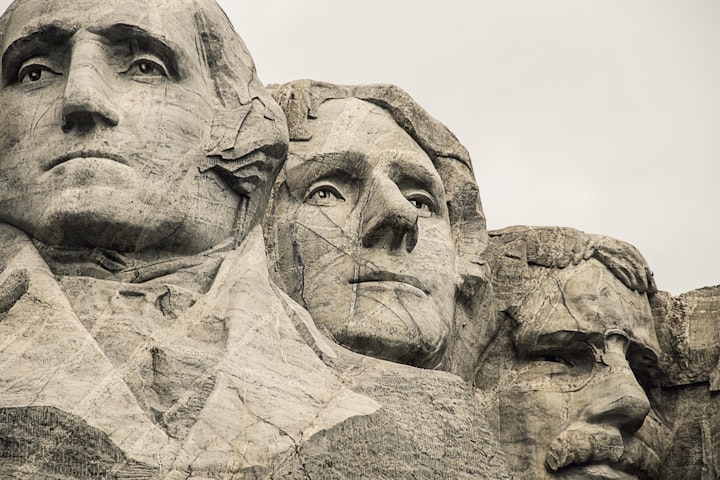Common Misunderstandings of the U.S. Constitution
Setting straight some common misconceptions about the U.S Constitution

The United States Constitution is one of the most influential documents in the history of the world.
It serves as the supreme law of the United States of America, establishing the framework for the government and guaranteeing certain fundamental rights to everyone on American soil. However, despite its significance, A vast majority of Americans have no idea of what the Constitution actually contains.
Here are some of the most commonly held beliefs people have about the Constitution and an explanation of what the document actually says.
Misconception 1: The Constitution guarantees the right to bear any kind of arms. A common misunderstanding about the Constitution is that it guarantees an absolute right to bear arms. This interpretation is often used to argue against gun control measures. However, while individuals have the right to bear arms, the government also has the authority to regulate firearms in the interest of public safety.The Supreme Court ruled that the Second Amendment doesn't prevent the government from imposing reasonable regulations on firearms.
In District of Columbia v. Heller (2008), the court ruled that the Second Amendment protects an individual's right to own a firearm for self-defense in their home, but also said that the right is not unlimited and is subject to reasonable regulations, and that some forms of regulation, like background checks, prohibiting convicted criminals and the mentally ill from gun ownership, restrictions on certain types of weapons, prohibiting carry of firearms in places like schools and government buildings, and imposing restrictions on who can or cannot sell firearms, are constitutional.
Misconception 2: From the start, the Constitution guarantees equal rights for all citizens. This isn't entirely true; while the Constitution did guarantee certain fundamental rights, such as freedom of speech and religion, initially, it didn't guarantee equal rights for everyone in the United States.
In fact, as it was interpreted, the Constitution originally excluded certain groups from enjoying these rights-such as women and slaves, as evidenced by the Dred Scott v. Sandford decision in 1857. It was only through amendments such as the 13th, 14th, 15th, and 19th Amendments that equal rights for all were finally guaranteed.
Misconception 3: The Constitution doesn't grant any rights to people who are in the United States illegally. This isn't entirely true. The US Constitution as it is interpreted today applies to all people within the United States, regardless of their immigration status.
The first ten amendments protect the basic rights of all individuals, including the right to due process, freedom of speech, and freedom from unreasonable searches and seizures. However, some constitutional rights may be limited to non-citizens, like the right to vote or hold public office.
Nevertheless, the basic protections given to every American citizen by the Constitution still apply to all non-citizens within the United States. The Bill of Rights (the first ten amendments) guarantee many of the basic protections to anyone in the United States.
- The First Amendment: Protects freedom of religion, freedom of speech, freedom of the press, freedom of assembly, and the right to petition the government.
- Second Amendment: Protects the right to keep and bear arms.
- Third Amendment: Prevents the government from forcing anyone to house soldiers in their homes.
- Fourth Amendment: Protects against unreasonable searches and seizures.
- Fifth Amendment: Protection against self-incrimination, double jeopardy, and denial of life, liberty, or property without due process.
- Sixth Amendment: Provides the right to a quick and public trial, the right to a jury, the right to be informed of the charges, and the right to counsel.
- Seventh Amendment: Provides the right to a trial by jury.
- The Eighth Amendment: Forbids excessive bail and fines, as well as cruel and unusual punishment.
- The Ninth Amendment: States that the Constitution shall not be interpreted to deny other rights retained by the people.
None gives an exception to whether or not someone is an American citizen.
Misconception 4: The Constitution requires a balanced budget. There is a belief that the Constitution requires the government to maintain a balanced budget. However, this is not the case.
The Constitution doesn't mention a balanced budget, and there's no requirement for the government to keep one. In fact, the government has run deficits in most years since the Constitution was adopted in 1788.
The Constitution only lays out the powers and responsibilities of the federal government-the power to levy taxes, borrow money, and regulate commerce. Although the Constitution places limits on the government's power to spend money, it doesn't require a balanced budget.
Misconception 5: The Constitution establishes a Christian nation. This is the opposite of the meaning of the document. One of the most persistent misunderstandings about the Constitution is that it establishes the United States as a Christian nation.
This misconception is due in large part to the fact that every president except one has held Christian beliefs. Since its founding, the majority of Americans have identified as Christian throughout the United States history. As such, many early politicians were very outspoken about their religious beliefs and saw politics as being in service to God and the common good.
Nonetheless, the Constitution is a secular document that does not mention any specific religion. While it guarantees freedom of religion, ensuring that everyone has the right to freely practice their religion—or not—without interference from the government, it also goes out of its way to separate itself from any form of religion.
The First Amendment states that "Congress shall make no law respecting an establishment of religion, or prohibiting the free exercise thereof."
The first part of this amendment bars the government from creating an official religion or give special treatment to one religion over another, and the second part protects the right of everyone to practice their religion without fear from the government.
Misconception 6: The United States Constitution abolished slavery and involuntary servitude. While it's true that the 13th Amendment made slavery illegal, it only pertains to free people.
The Constitution actually codified slavery as a form of punishment for someone who's convicted of a crime with the 13th Amendment. "Neither slavery nor involuntary servitude, except as a punishment for crime whereof the party shall have been duly convicted, shall exist within the United States, or any place subject to their jurisdiction."
At the end of the day, the United States Constitution is a complex and comprehensive document that has played a crucial role in shaping the United States over the past two centuries. However, despite its importance, there are many misconceptions about what the Constitution actually says and what it guarantees. Nonetheless, by grasping the true meaning of the Constitution, we can better appreciate its principles.
About the Creator
William Saint Val
I write about anything that interests me, and I hope whatever I write will be of interest to you too.






Comments (1)
its true meaning and significance in shaping American society and governance.